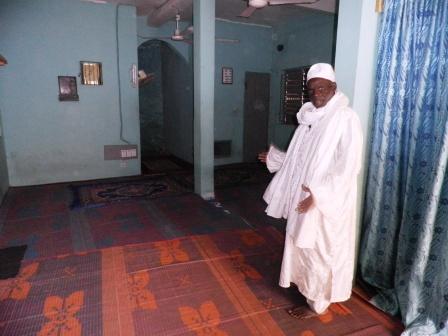Ruth, Josephine and Fatou conducted the fieldwork from May to July 2014. We recruited a diverse sample of 30 families predominantly of Wolof, Serer and Hal Pulaaren ethnicities in two areas of each of the two selected cities (Dakar and Kaolack). Médina and Guédiawaye were selected as contrasting areas of Greater Dakar, while Touba Extension and Kasnak were selected in Kaolack following discussions with Senegal Advisory Group members and representatives of APROFES and AFEME, women’s rights organisations. Families in the four areas were identified through a local facilitator, local or religious leaders and efforts were made to ensure diversity in ethnic and religious affiliation and socio-economic status.
In total, we conducted in-depth interviews with 59 family members (2 in each family) who had experienced the death of a relative. The majority of families were Muslim and a small number (6) were Roman Catholic. Family members were selected on the basis of differing generational positions within households and on the basis of their relationship to the deceased. We also prioritised children and young people where possible. We interviewed 20 key informants, comprising local and religious leaders, community-based organisations, government and NGO representatives working at local and national levels. We also conducted four focus groups (one in each area) with groups of women and young people to explore community members’ perceptions of the neighbourhood and discuss cultural and religious practices and norms surrounding death, mourning and grief.
All the audio-recorded interviews and focus groups are now being transcribed and translated into French and English and we are developing our approach to data analysis through reflexive conversations among the research team. We plan to present a paper reflecting on the methodological issues raised by qualitative cross-cultural research that investigates responses to death at the Inter-disciplinary.net conference, Making Sense of Suffering, Dying and Death in Prague, 1-3 November 2014 , if you’re planning to go!




